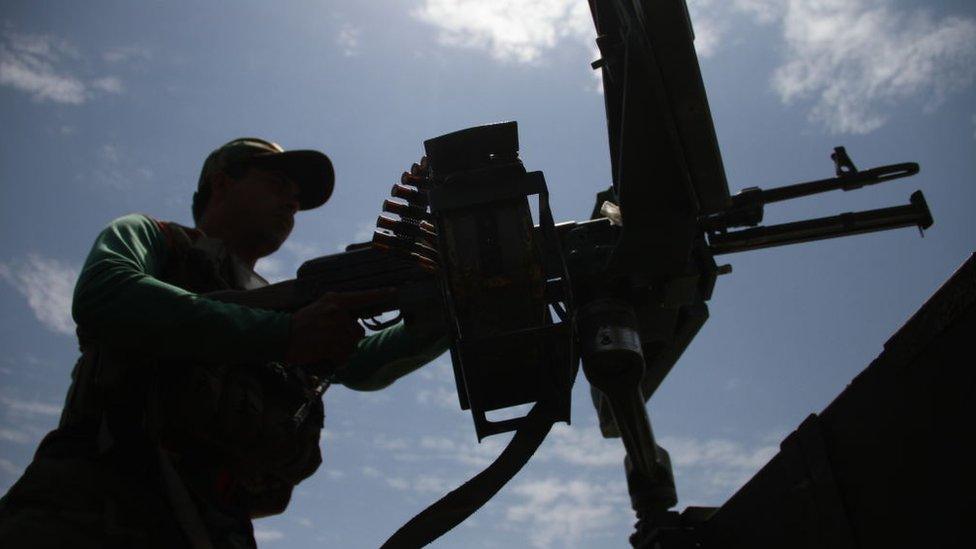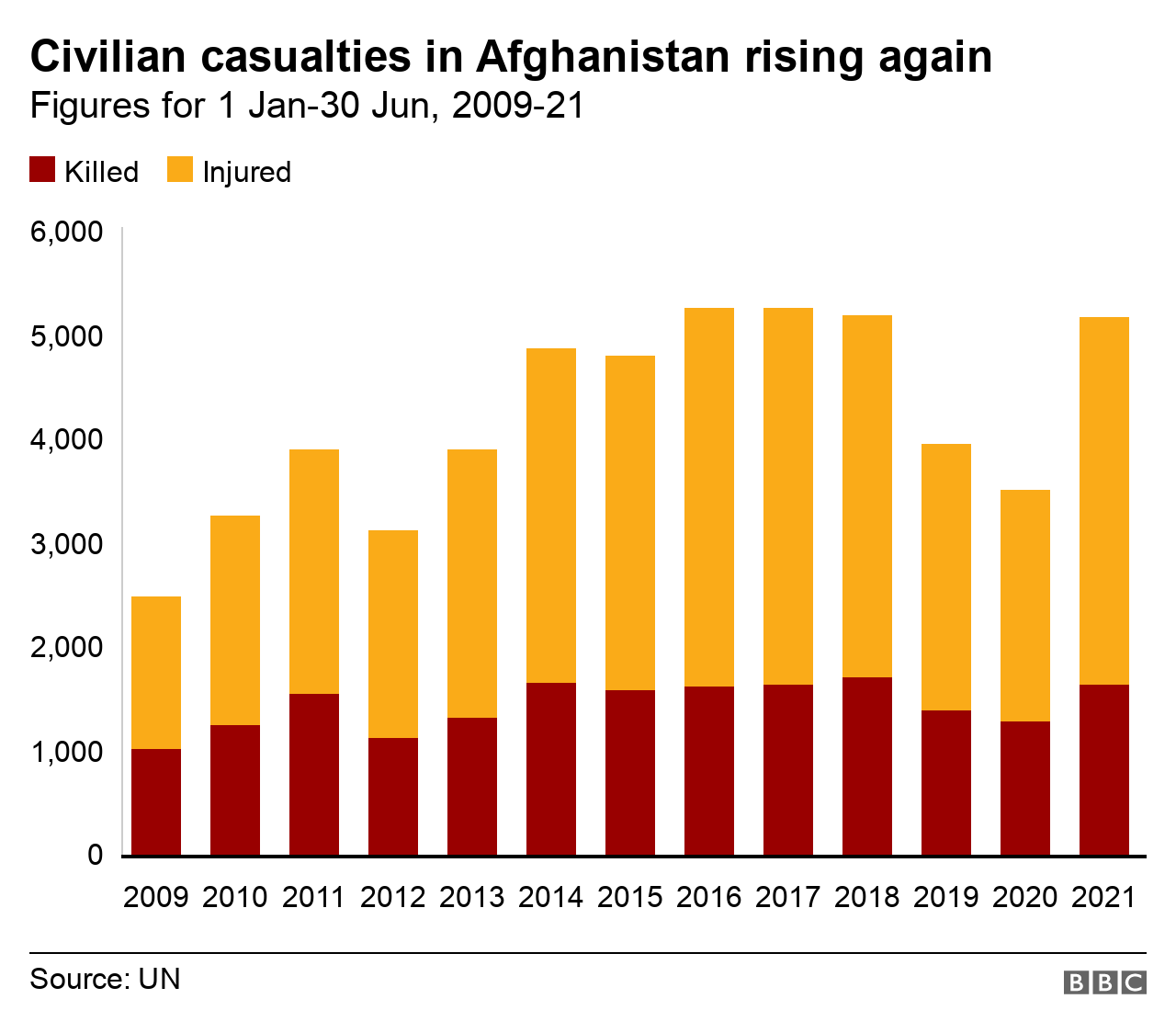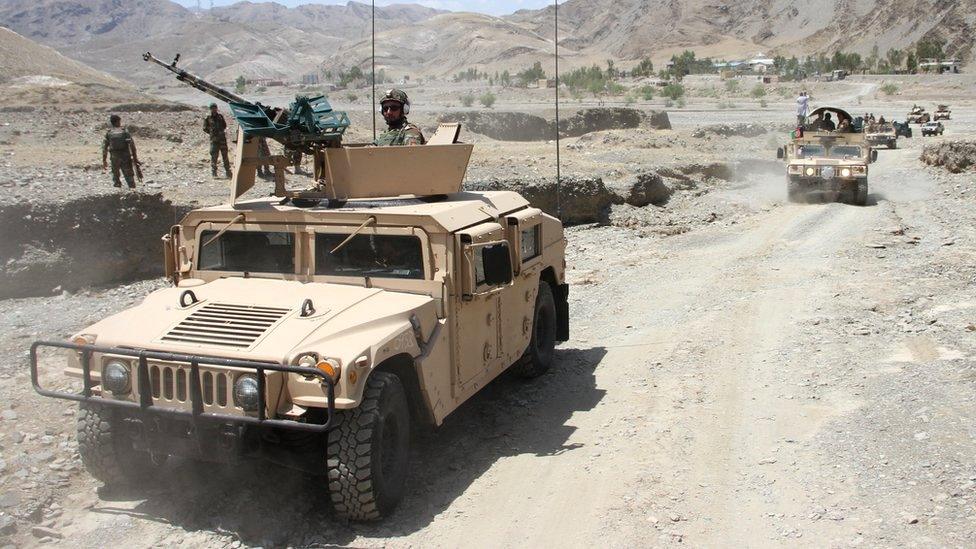Afghanistan: Record civilian casualties in 2021, UN reports
- Published

Fighting has escalated in recent months as foreign forces have withdrawn
Afghan civilians were killed or injured at record levels in the first half of this year as violence escalated, the UN says.
A new report says Afghanistan recorded more than 1,600 civilian deaths so far in 2021. That's a 47% rise compared with this time last year.
And the UN warns the number of deaths could rise still further.
Government forces have been fighting Taliban insurgents, who now control large parts of the country.
Most international forces have withdrawn after a mission lasting nearly 20 years.
Casualties in May and June rose to their highest for this period since the UN began recording the numbers in 2009.
According to the UN report, external, anti-government forces were responsible for 64% of civilian casualties. Pro-government forces accounted for 25%, and 11% are blamed on crossfire. Of all casualties, 32% were children.
Peace talks between the two sides are moving slowly. Deborah Lyons, the UN special envoy for Afghanistan, urged both sides to "take heed of the conflict's grim and chilling trajectory".
"The report provides a clear warning that unprecedented numbers of Afghan civilians will perish and be maimed this year if the increasing violence is not stemmed," she said in the UN release.




All the trends are pointing in the wrong directions at the moment. Violence has been increasing, particularly since May, whilst peace talks between the government and Taliban remain largely stalled. What happens after the end of August, when international forces formally depart, is a question everyone is asking.
Having already taken over a large number of rural areas, the Taliban are increasingly turning their focus to cities. They've insisted they don't want to launch a military takeover of the country, but many are sceptical of that. Whilst some are determined to resist, on social media smugglers offering routes out of Afghanistan are being flooded with requests.
One of the few tactics the Taliban have largely refrained from using since signing a deal with the US, is the kind of large-scale suicide bombings that have rocked Afghan cities in previous years. Will they choose to launch them once again after August? Or will they try to pressurise security forces there into surrendering?
The prospects for the coming months look grim - either a rapid Taliban advance, or heavy and protracted fighting as the two sides struggle to exert their control.

A US-led invasion of Afghanistan in 2001 ousted the Taliban from power.
This year US President Joe Biden announced the withdrawal of US forces from the country by September.
On Saturday top US commander Gen Kenneth McKenzie said their forces would continue carrying out air strikes in support of Afghan troops. He said a Taliban victory was not inevitable.
However, Gen McKenzie did not say if the strikes would continue after the end of the US military mission on 31 August.
Afghan officials have imposed a month-long nightly curfew across most of the country to try to halt the Taliban advance.
Related topics
- Published25 July 2021
